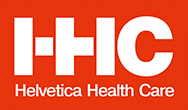The Importance of Using External Controls in Molecular Microbiology
Quality assurance or QA refers to the quality control activities relevant to analytical procedures conducted in the clinical microbiology laboratory. Quality assurance should incorporate external and internal quality evaluations. Applying quality control devices in molecular microbiology assays is crucial to ensure precise results and proper patient management.
External Quality assurance is sometimes used correspondingly with proficiency genetic testing; however, it can also be carried out using other processes. External quality assurance is used to define a method that relates a laboratory’s testing to an origin outside the clinical laboratory. This comparison can associate a companion group of molecular diagnostics laboratories or a reference laboratory’s performance.
External quality control is used for laboratory comparisons, identifying stochastic and systematic errors, and assessing some reagents or commercial diagnostic kits’ suitability, and advancing education.
Internal quality control enables random and systematic errors to be detected by including quality control samples in the laboratory, equipment monitoring, and audit assays. Evaluation of all molecular testing and microbiology assays before their inclusion in the daily routine work of the clinical laboratory is essential.
Quality Control and Standardization in Molecular Diagnostics
The movement of traditional serological diagnostics into routine discovery and quantitative nucleic acid purification in clinical specimens urgently needs specific quality control programs.
Quality control is the laboratory’s first order of security against potential errors. Most identification instruments come with internal controls; however, they are usually optimized to function well with that system as the instrument supplies them.
For this apparent reason, it is essential that molecular diagnostics laboratories also employ external controls for a fair evaluation of your procedures, reagents, and instrument performance. It is imperative to utilize external controls in the following examples:
➔ When validating the tool or a kit
➔ Before & after maintenance
➔ When shifting to a new supplier or a new method
➔ When working with a new set of reagent
➔ When training or testing a technicians aptitude
Assessment is a crucial aspect of laboratory quality administration, and it can be conducted in numerous ways. One of the regularly employed assessment methods is that of external quality assessment (EQA). EQA is essential for improving the laboratory quality management system, as it measures laboratory performance.
Benefits of External Quality Assessment
Participation in an EQA program contributes valuable data and erudition, which allows observation of performance and results among a wide range of test sites:
● Accommodates early warning for methodical problems associated with kits or operations
● Provides scientific evidence of trial quality
● Indicates areas that need improvement
● Identifies training requirements
EQA helps to ensure customers, such as surgeons, patients, and health professionals, that the laboratory can deliver substantial results.
Private molecular diagnostics laboratories can use external quality assessment to identify laboratory studies’ difficulties, enabling appropriate corrective action. External quality assessment participation will help estimate the reliability of methods, materials, and equipment, evaluate, and monitor training impact.
External quality assessment can help ensure that different laboratories’ results during surveillance activities are comparable for laboratories performing public health-related testing. External quality assessment participation is usually a needed accreditation as participation builds a system for communication and can improve a national laboratory network. Samples collected from external quality testing the information accorded by the provider can help manage advancing education activities.
Managing external quality assessment in the laboratory
All molecular diagnostics laboratories should partake in external quality assessment challenges —this should include external quality assessment for all genetic testing methods conducted in the laboratory.
The advantages of this participation are considerable, and external quality assessment provides the only medians available to a lab to guarantee that its production is equivalent to that of other labs. For certified labs or those that plan to seek certification, external quality assessment participation is essential. ISO 15189 petitions external quality assessment requirements for molecular diagnostics laboratories as follows:
- There is a demand that the lab participates in interlaboratory comparisons.
- An accredited external quality assessment system is not available. For interlaboratory associations, like replacing samples with other laboratories, an alternate external quality assessment mechanism will have to be considered.
- The clinical laboratory management shall observe the results of external quality assessment and participate in implementing restorative actions.
When participating in EQA programs, the laboratory needs to develop a process for managing the process. A primary objective is to ensure that all EQA samples are treated in the same manner as other samples tested. Should develop procedures that address:
- Handling samples- Samples will need to be logged, adequately processed, and stored as required for eventual use.
- Analyses of samples – Consider whether external quality assessment samples can be tested so that personnel does not identify them as different from patient samples.
- Appropriate record-keeping- Laboratories should keep all external quality assessment testing reports reporting over time to measure performance improvement.
- Taking corrective action- when performance is not good, external quality assessment aims to detect problems in the laboratory and work towards its improvement.
- Communication of results and consequences to all laboratory staff and management
Contact Helvetica Health Care for more information on molecular diagnostics laboratories.
